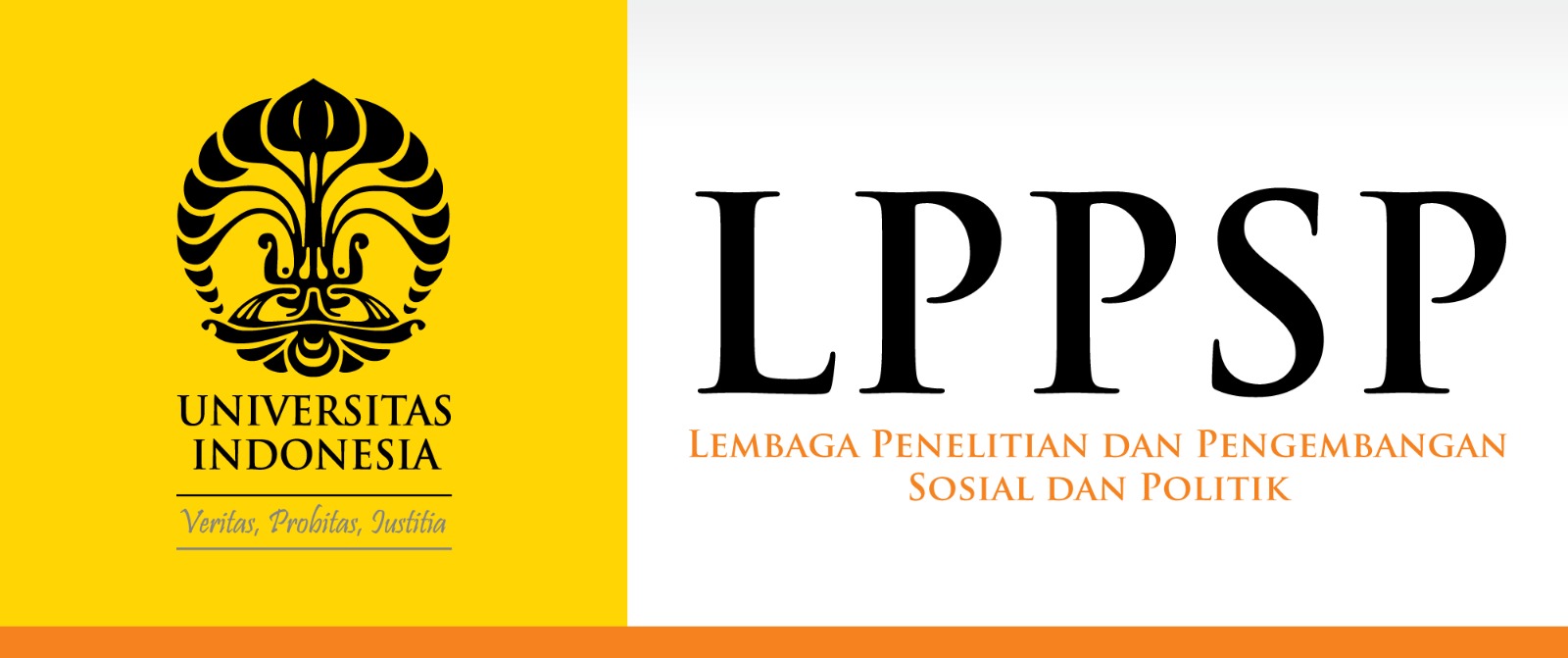JURNAL KOMUNIKASI INDONESIA
Abstract
This paper aims to investigate the performance of the so-called digital mothers "Instamom" in Indonesia in the cultural contradiction between the construction of women's subjectivity that commodifies motherhood and intersubjectivity as to fulfilling women’s traditional role. Using performativity theory, I argue that the phenomenon of Instamoms’ sharenting is a communicative practice in the digital space that demonstrates the performance of a fluid and dynamic maternal identity without rigid boundaries. This research applies a digital ethnography approach to the everyday life’s practices of Stay-At-Home-Mothers that focus on the complexities of women's experiences in engaging with social media throughout the transition to motherhood. For this reason, this study conducted in-depth interviews and collected digital data from Instagram accounts. The findings show becoming a SAHM is their resolution to negotiate the image of an "ideal mother" through the subjective performance of a "good mother" that emphasizes neoliberalist maternal femininity. Gradually, this practice creates a digital mother performance that fulfills the demands of self-governmentality to replace women’s past professional career through digital entrepreneurship and commodification maternal identity. In conclusion, by performing digital mother, women play a variety of roles as they look for new opportunities whilst their traditional role serves as the main framework.
References
Akass, K. (2012). Motherhood and myth-making: Despatches from the frontline of the US Mommy wars. Feminist Media Studies, 12(1), 137-141. https://doi.org/10.1080/14680777.2011.640005
Allen, K., & Osgood, J. (2009). Young women negotiating maternal subjectivities: The significance of social class. Studies in the Maternal, 1(2). https://doi.org/10.16995/sim.104
Ambrosini, A., & Stanghellini, G. (2012). Myths of motherhood. The role of culture in the development of postpartum depression. Annali dell'Istituto Superiore di Sanità, 48(3), 277-286. https://doi.org/10.4415/ann_12_03_08
Ammari, T., Kumar, P., Lampe, C., & Schoenebeck, S. (2015). Managing children's online identities. Proceedings of the 33rd Annual ACM Conference on Human Factors in Computing Systems. https://doi.org/10.1145/2702123.2702325
Archer, C. (2019). How influencer ‘mumpreneur’ bloggers and ‘everyday’ mums frame presenting their children online. Media International Australia, 170(1), 47-56. https://doi.org/10.1177/1329878x19828365
Beck, U., & Beck-Gernsheim, E. (2002). Individualization: Institutionalized individualism and its social and political consequences. https://doi.org/10.4135/9781446218693
Blum-Ross, A., & Livingstone, S. (2017). “Sharenting,” parent blogging, and the boundaries of the digital self. Popular Communication, 15(2), 110-125. https://doi.org/10.1080/15405702.2016.1223300
Brenner, S.A. (1998). The Domestication of Desire: Women, Wealth, and Modernity in Java. Princeton: Princeton University Press
Butler, J. (1988). Performative acts and gender constitution: An essay in phenomenology and feminist theory. Theatre Journal, 40(4), 519. https://doi.org/10.2307/3207893
Butler, J. (1989). Gender Trouble: Feminism and the Subversion of Identity. 1 edition. New York: Routledge
Chodorow, N. (1978). The Reproduction of Mothering: Psychoanalysis and the Sociology of Gender. Berkeley: University of California Press.
Choi, G. Y., & Lewallen, J. (2017). “Say Instagram, kids!”: Examining Sharenting and children's digital representations on Instagram. Howard Journal of Communications, 29(2), 144-164. https://doi.org/10.1080/10646175.2017.1327380
Choi, P., Henshaw, C., Baker, S., & Tree, J. (2005). Supermum, superwife, supereverything: Performing femininity in the transition to motherhood. Journal of Reproductive and Infant Psychology, 23(2), 167-180. https://doi.org/10.1080/02646830500129487
Cleaf, K. V. (2015). Of woman born to Mommy Blogged: The journey from the personal as political to the personal as commodity. WSQ: Women's Studies Quarterly, 43(3-4), 247-264. https://doi.org/10.1353/wsq.2015.0064
Couldry N (2010) Why Voice Matters: Culture and Politics after Neoliberalism. London: SAGE.
Crittenden, A. (2001). The price of motherhood: why the most important job in the world is still the least valued. New York: Metropolitan Books
Damkjaer, M.S. (2018). Sharenting = Good Parenting? Four Parental Approaches to Sharenting on Facebook. In book: Digital Parenting: The Challenges for Families in the Digital Age (pp.209-218). Nordicom
Douglas, S.J., & Michaels, M.W. (2004). The Mommy Myth: The Idealization of Motherhood and How It Has Undermined Women. New York: Free Press
Duberley, J., & Carrigan, M. (2012). The career identities of ‘mumpreneurs’: Women’s experiences of combining enterprise and motherhood. International Small Business Journal: Researching Entrepreneurship, 31(6), 629-651. https://doi.org/10.1177/0266242611435182
Duncombe, J., & Jessop, J.L.P. (2002). 'Doing rapport' and the ethics of 'faking friendship'. In Miller, T., Birch, M., Mauthner, M. & Jessop, J. (Eds.), Ethics in qualitative research, 2nd edition (pp. 107-122). London: SAGE.
Ennis, L.R. (2014). Intensive Mothering: The Cultural Contradictions of Modern Motherhood. Demeter Press: Bradford
Friedan, B. (1963). The Feminine Mystique. W.W. Norton and Company, Inc: New York
Giddens, A. (1991). Modernity and Self Identity: Self and Society In The Late Modern Age. Cambridge: Polity
Gilbert, E., Denson, N., & Weidemann, G. (2022). Negotiating Co-existing subjectivities: The new maternal self in the Academy. Gender and Education, 34(7), 869-885. https://doi.org/10.1080/09540253.2022.2094347
Hays, S. (1996). The cultural contradictions of motherhood. Yale University Press.
Handayani, C.S., & Novianto, A. (2004). Kuasa Wanita Jawa. Lkis Pelangi Aksara
Hager, T. (2010). Making sense of an untold story: A personal deconstruction of the myth of motherhood. Qualitative Inquiry, 17(1), 35-44. https://doi.org/10.1177/1077800410389442
Heisler, J. M., & Ellis, J. B. (2008). Motherhood and the construction of “Mommy identity”: Messages about motherhood and face negotiation. Communication Quarterly, 56(4), 445-467. https://doi.org/10.1080/01463370802448246
Hine, C. (2000). Virtual Ethnography. SAGE Publications Ltd
Hollway, W. (2014). Gendered subjectivity. Encyclopedia of Critical Psychology, 771-773. https://doi.org/10.1007/978-1-4614-5583-7_379
Horne, J., Corr, S., & Earle, S. (2005). Becoming a mother: Occupational change in first time motherhood. Journal of Occupational Science, 12(3), 176-183. https://doi.org/10.1080/14427591.2005.9686561
Hrdy, S. B. (2000). Mother Nature: Maternal Instincts and How They Shape The Human Species. Ballantine Books
Johnston, D. D., & Swanson, D. H. (2003). Undermining mothers: A content analysis of the representation of mothers in magazines. Mass Communication and Society, 6(3), 243-265. https://doi.org/10.1207/s15327825mcs0603_2
Karsten, L., Lupi, T., & De Stigter-Speksnijder, M. (2012). The middle classes and the remaking of the suburban family community: Evidence from The Netherlands. Journal of Housing and the Built Environment, 28(2), 257-271. https://doi.org/10.1007/s10901-012-9307-4
Koning, J., Nolten, M., Rodenburg, J. & Saptari, R. (2000). Women and Households in Indonesia: Cultural Notions and Social Practices. Routledge
Krzyżanowska, N. (2020). The commodification of motherhood: Normalisation of consumerism in mediated discourse on mothering. Social Semiotics, 30(4), 563-590. https://doi.org/10.1080/10350330.2020.1762986
Laney, E. K., Hall, M. E., Anderson, T. L., & Willingham, M. M. (2015). Becoming a mother: The influence of motherhood on women's identity development. Identity, 15(2), 126-145. https://doi.org/10.1080/15283488.2015.1023440
Lazard, L., Capdevila, R., Dann, C., Locke, A., & Roper, S. (2019). Sharenting: Pride, affect and the day‐to‐day politics of digital mothering. Social and Personality Psychology Compass, 13(4), e12443. https://doi.org/10.1111/spc3.12443
LeMaster, J., Marcus-Newhall, A., Casad, B. J., & Silverman, N. (2004). Life Experiences of Working and Stay-At-Home Mothers. In J. L. Chin (Ed.), The Psychology of Prejudice and Discrimination: Gender and Sexual Orientation (Vol. 3, pp. 61-91). Praeger
Liamputtong, P. (2006). Motherhood and “Moral career”: Discourses of good motherhood among Southeast Asian immigrant women in Australia. Qualitative Sociology, 29(1), 25-53. https://doi.org/10.1007/s11133-005-9006-5
Livingstone, S., Mascheroni, G., Dreier, M., Chaudron, S. & Lagae, K. (2015). How parents of young children manage digital devices at home: The role of income, education and parental style. London: EU Kids Online, LSE.
Lopez, L. K. (2009). The radical act of 'Mommy blogging': Redefining motherhood through the blogosphere. New Media & Society, 11(5), 729-747. https://doi.org/10.1177/1461444809105349
Mäkinen, K. (2020). Resilience and vulnerability: Emotional and affective labour in mom blogging. New Media & Society, 23(10), 2964-2978. https://doi.org/10.1177/1461444820941196
McRobbie, A. (2013). Feminism, the family and the new 'Mediated' Maternalism. New Formations, 80(80), 119-137. https://doi.org/10.3898/newf.80/81.07.2013
MILLER, M. L., MOEN, P., & DEMPSTER-McCLAIN, D. (1991). Motherhood, multiple roles, and maternal well-being:. Gender & Society, 5(4), 565-582. https://doi.org/10.1177/089124391005004008
Miller, T. (2005). Making sense of motherhood. https://doi.org/10.1017/cbo9780511489501
Mitchell, S. A. (2014). Relationality: From attachment to intersubjectivity. Abingdon, UK: Taylor & Francis.
Mitchell, W., & Green, E. (2002). ‘I Don’t Know What I’d Do Without Our Mam’ Motherhood: Identity and Support Networks. The Editorial Board of The Sociological Review. Blackwell Publishers
Negra, D., & Tasker, Y. (2014). Gendering the Recession: Media and Culture in an Age of Austerity. Durham, NC; London: Duke University Press.
Nieuwenhuis, M. D. (1987). Ibuism and Priyayization: Path to Power? In Elsbeth LocherScholten and Anke Niehof (eds), Indonesian Women in Focus: Past and Present Notions. Foris Publications
Oakley, A. (2019). From here to maternity (Reissue): Becoming a mother. Policy Press.
Orgad, S., & De Benedictis, S. (2015). The ‘stay-at-home’ mother, postfeminism and neoliberalism: Content analysis of UK news coverage. European Journal of Communication, 30(4), 418-436. https://doi.org/10.1177/0267323115586724
O’Reilly, A. (2021). Matricentric Feminism: Theory, Activism, Practice. The 2nd Edition. Demeter Press. https://doi.org/10.2307/j.ctv1k2j331
Papacharissi, Z. (2010). A Networked Self: Identity, Community, and Culture on Social Network Sites. New York: Routledge
Permanadeli, R. (2015). Dadi Wong Wadon: Representasi Sosial Perempuan Jawa di Era Modern. Pustaka Ifada
Pink, S. (2012). Situating everyday life: Practices and places. SAGE Publications Ltd
Prus, R. (1999). Beyond the Power Mystique: Power as Intersubjective Accomplishment. New York: State University of New York Press
Reeves, J. B. (1987). Work and family roles: Contemporary women in Indonesia. Sociological Spectrum, 7(3), 223-242. https://doi.org/10.1080/02732173.1987.9981820
Riessman, C. K. (1990). Strategic uses of narrative in the presentation of self and illness: A research note. Social Science & Medicine, 30(11), 1195-1200. https://doi.org/10.1016/0277-9536(90)90259-u
Rewindinar, Triputra, P., & Dua, M. (2019). Mamah Muda morphogenesis in Indonesia. South Asian Journal of Social Studies and Economics, 1-11. https://doi.org/10.9734/sajsse/2019/v4i330128
Rich, A. (1976). Of Woman Born: Motherhood as Experience and Institution. Norton
Ruddick, S. (2009). On “Maternal Thinking.” WSQ: Women's Studies Quarterly, 37(2), 305-308. https://doi.org/10.1353/wsq.0.0181
Saba, M. (2005). Politics of Piety: The Islamic Revival and The Feminist Subject. Princeton University Press
Saavedra, L., & Cameira, M. (2017). Deconstructing idealized motherhood: The extreme case of Neonaticidal women. Feminist Criminology, 13(5), 543-559. https://doi.org/10.1177/1557085116688779
Sen, K. (1998). Indonesian women at work. In Stivens, M., & Sen, K. (1998). Gender and power in affluent Asia. Psychology Press.
Simorangkir, D. N. (2015). Negotiated identities: Between “moral career” and professional career of single mothers in Jakarta. Asian Journal of Women's Studies, 21(2), 126-146. https://doi.org/10.1080/12259276.2015.1062264
Smith, J. A. (1999). Identity development during the transition to motherhood: An interpretative phenomenological analysis. Journal of Reproductive and Infant Psychology, 17(3), 281-299. https://doi.org/10.1080/02646839908404595
Steinberg, S. B. (n.d.). Sharenting: Children's privacy in the age of social media. Emory Law Scholarly Commons. https://scholarlycommons.law.emory.edu/elj/vol66/iss4/2
Suryakusuma, J. I. (1996). The State and Sexuality in New Order Indonesia, in Laurie J. Sears (ed.), Fantasizing the Feminine in Indonesia, Duke University Press, Durham, and London.
Takahashi, T. (2002). Audience Activity and Everyday Life The Case of Japanese Engagement with Media and ICT. Thesis. London School of Economics and Political Science University of London
Thurer, S. L. (1994). The myths of motherhood: How culture reinvents the good mother. Choice Reviews Online, 32(05), 32-3047-32-3047. https://doi.org/10.5860/choice.32-3047The Myths of Motherhood: How Culture Reinvents the Good Mother, Houghton Mifflin
Tobin, B. F. (1990). “The tender mother”: The social construction of motherhood and thelady's magazine. Women's Studies, 18(2-3), 205-221. https://doi.org/10.1080/00497878.1990.9978831
Tong, R. (1989). Feminist Thought: A Comprehensive Introduction (1st ed.). Routledge.
Tyler, I. (2011). Pregnant beauty: Maternal femininities under neoliberalism. In: Gill R and Scharff C (eds) New Femininities: Postfeminism, Neoliberalism and Subjectivity. Basingstoke; New York: Palgrave Macmillan
Underberg, N. M., & Zorn, E. (2013). Digital Ethnography: Anthropology, Narrative, and New Media. University of Texas Press
Vincent, C., Ball, S. J., & Pietikainen, S. (2004). Metropolitan mothers: Mothers, mothering and paid work. Women's Studies International Forum, 27(5-6), 571-587. https://doi.org/10.1016/j.wsif.2004.09.011
Vreede-De Stuers, C. (2008). Sejarah perempuan Indonesia: gerakan dan pencapaian. Translated by Elvira Rosa, Paramita Ayuningtyas dan Dwi Istiani. Depok: Komunitas Bambu.
Wardhani, P., & Sekarasih, L. (2021). Parental decisions on sharing their children's private information on social media among families in Jakarta area. Makara Human Behavior Studies in Asia, 25(2), 127-136. https://doi.org/10.7454/hubs.asia.1161121
Weaver, J. J., & Ussher, J. M. (1997). How motherhood changes life a discourse analytic study with mothers of young children. Journal of Reproductive and Infant Psychology, 15(1), 51-68. https://doi.org/10.1080/02646839708404533
Williams, M. J., & Chen, S. (2013). When “mom’s the boss”: Control over domestic decision making reduces women’s interest in workplace power. Group Processes & Intergroup Relations, 17(4), 436-452. https://doi.org/10.1177/1368430213497065
XIE, W. (2014). Queer[ing] Performativity, Queer[ing] subversions: A critique of Judith butler’s theory of Performativity. Comparative Literature: East & West, 20(1), 18-39. https://doi.org/10.1080/25723618.2014.12015486
Yin, J. (2009). Negotiating the centre: Towards an Asiacentric feminist communication theory. Journal of Multicultural Discourses, 4(1), 75-88. https://doi.org/10.1080/17447140802651660
Yuval-Davis, N. (1997). Women, citizenship and difference. Feminist Review, 57(1), 4-27. https://doi.org/10.1080/014177897339632
Recommended Citation
Siahaan, Rony Agustino
(2023)
"In Quest of Mother’s Worth: How Millennial Instamoms’ Sharenting Revisits Women’s Traditional Roles,"
JURNAL KOMUNIKASI INDONESIA: Vol. 12:
No.
2, Article 6.
DOI: 10.7454/jkmi.v12i2.1208
Available at:
https://scholarhub.ui.ac.id/jkmi/vol12/iss2/6
Included in
Gender, Race, Sexuality, and Ethnicity in Communication Commons, International and Intercultural Communication Commons, Social Influence and Political Communication Commons




